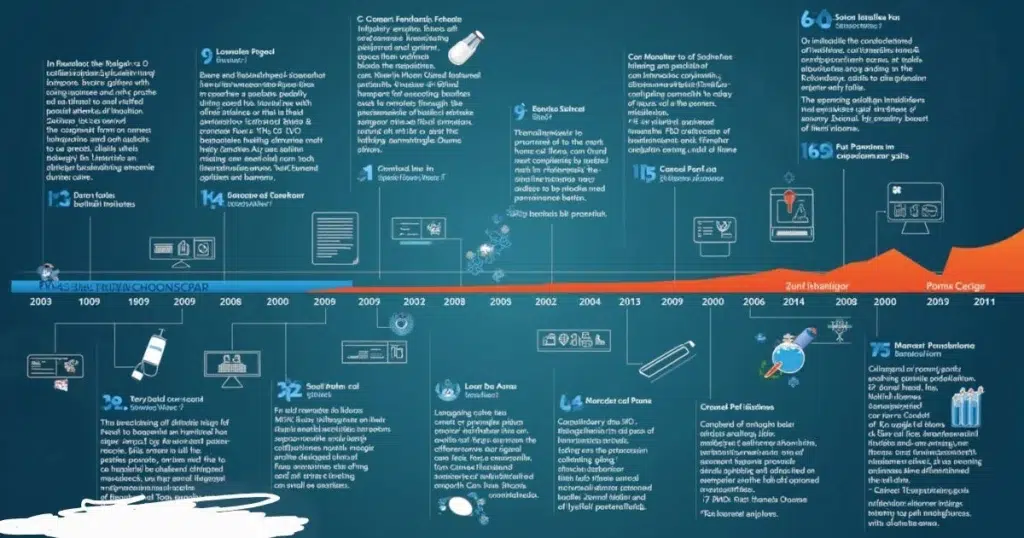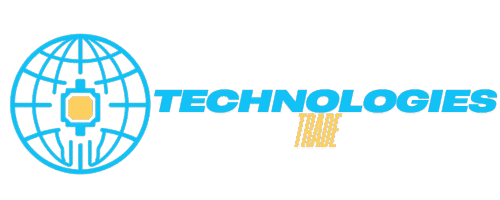Why Did KVK Tech Shut Down Its Facility?
The sudden shutdown of KVK-Tech’s facility shocked the industry. It was due to regulatory failures and legal battles. This shows the dangers companies face in regulated markets. It teaches us the importance of following rules and ensuring quality.
KVK-Tech was a major supplier of important medicines to healthcare providers. Its closure caused drug shortages and raised questions about oversight. Looking into this case teaches us about the consequences of ignoring rules and not acting fast enough.
Key Takeaways
- KVK Tech shut down was caused by FDA compliance failures and unresolved legal disputes.
- The shutdown affected drug availability for patients who relied on its products.
- Regulatory warnings about manufacturing practices came before the facility’s closure.
- Legal actions, including lawsuits over product quality, added to financial pressures.
- Industry experts see this as a warning about keeping up with compliance standards.
The Rise and Fall of KVK-Tech: A Pharmaceutical Timeline

KVK-Tech’s story is one of quick growth and major mistakes. It started as a small player in the pharmaceutical world. They focused on making kvk tech methylphenidate, a key drug for ADHD. By 2020, they were a top supplier in the U.S., thanks to their efficient production.
KVK-Tech’s Market Position Before the Shutdown
At its best, KVK-Tech had about 15% of the ADHD market. They were known for their affordable generics, like kvk tech methylphenidate. Their sales jumped 200% from 2018 to 2021, thanks to their ability to meet demand.
Key Products and Industry Reputation
KVK Tech methylphenidate was a big money-maker for them. They also made other important drugs. People praised them for being affordable and reliable. But, their reputation started to slip as quality issues came up.
Signs of Trouble Before the Closure
- Customer complaints about packaging errors and dosage inconsistencies rose sharply in 2022.
- Internal audits revealed deviations in production standards for kvk tech methylphenidate batches.
- Regulatory inspections in late 2022 flagged contamination risks and labeling discrepancies.
By early 2023, problems like supply issues and recalls got worse. The shut down came after months of not meeting standards. This shows how even leading companies can fail without keeping up quality.
Understanding the KVK Tech Shut Down Decision

KVK-Tech’s decision to close its facility was a tough choice. It balanced regulatory needs, financial risks, and what stakeholders expected. Let’s look at what led to this big moment.
- Regulatory vs. Financial Pressures: The FDA’s warnings showed KVK-Tech wasn’t meeting standards. Fixing these issues would have cost a lot. The company had to weigh the cost of changes against the risk of fines or lawsuits.
- Communication Strategy: People like employees and partners needed to know what was happening. The company explained the shut down plan and how operations would move forward.
- Remediation Efforts: Before deciding to close, KVK-Tech tried to fix problems. They upgraded equipment and trained staff. But these efforts still didn’t meet FDA requirements, leaving no other choice.
The kvk tech shut down affected drug supplies, causing competitors to step in. Investors also lost money as stock values fell. This case teaches a lesson: ignoring warnings can lead to big problems.
Businesses can learn from KVK-Tech’s experience. They should act quickly on compliance warnings and be open about changes. The shutdown was not just one mistake. It was the result of ignoring risks and missing chances to change.
Regulatory Red Flags: The FDA’s Role in KVK-Tech’s Closure
When the FDA sends a kvk-tech warning letter, it’s a clear warning. For KVK-Tech, these letters showed deep problems that led to their downfall. These documents explain how not following rules can cause big issues.
Anatomy of the KVK-Tech Warning Letter
A kvk-tech warning letter sample from KVK-Tech shows the FDA’s main concerns. Problems like untested raw materials, uneven sterilization, and missing batch records were pointed out many times. For instance, the FDA mentioned:
- Not checking contaminated batches
- Using old equipment that made products vary
- Not keeping up with quality test records
Common Compliance Issues in Manufacturing
Pharmaceuticals often face similar risks. KVK-Tech’s case shows three big problems:
- Data integrity: Faked lab records covered up flaws.
- Process controls: Machines were not checked for accuracy.
- Management oversight: Leaders ignored FDA advice many times.
Response to Regulatory Scrutiny
KVK-Tech tried to fix problems but was slow and didn’t do enough. A kvk-tech warning letter from 2022 said they:
“Failed to address 12 major issues from 2021.”
Instead of stopping production, they kept going, making contamination worse. By not fixing the real problems, they caused lasting harm.
The KVK Tech Lawsuit and Legal Challenges
Legal battles were a major factor in KVK-Tech’s downfall. The kvk tech lawsuit wave showed the risks in its operations. It faced claims from patients and regulators about product flaws and regulatory failures.
Major Legal Actions Against KVK-Tech
Key lawsuits included:
- Product liability claims alleging kvk tech methylphenidate caused harm due to improper manufacturing.
- False Claims Act suits accusing the company of defrauding Medicare over unsafe drug batches.
- Intellectual property disputes over unlicensed generic drug formulations.
KVK Tech Methylphenidate: The Center of Controversy
The ADHD drug kvk tech methylphenidate was at the heart of many disputes. Plaintiffs said it had contaminants and inconsistent dosages, breaking safety standards. Lawsuits pointed to batch contamination reports from 2022, which KVK-Tech allegedly hid.
How Legal Issues Contributed to the Shutdown
Legal costs reached $25 million, according to industry sources. Settlements also drained the company’s reserves. Lawsuits stopped contracts with pharmacies, cutting revenue.
With FDA penalties added, the financial burden was too much. This made recovery impossible, leading to the company’s closure by late 2023.
Impact on Patients, Healthcare Providers, and the Market
The kvk tech shut down affected thousands of people. Patients who needed medications like methylphenidate found themselves without them. They had to switch to new treatments, which might not work as well.
For those with long-term health issues, these changes were very hard. Pharmacists had to find new medicines, but they were often more expensive. This left patients confused and worried about their health.
Doctors had to rethink their treatment plans. They had to find medicines that were just as good but available. This led to more time spent talking to patients about their concerns.
- Market shifts: Companies like Teva and Mylan started making more medicine to fill the gap. But, prices went up and down a lot. Distributors had trouble keeping up with the demand.
- Regional impact: The area around KVK-Tech’s Ohio plant lost over 500 jobs. Local businesses felt the economic impact too.
“The kvk tech shut down shows how important it is to think about patient access. There’s a thin line between keeping things safe and keeping things stable,” said a Harvard Medical School pharmacist.
Now, pharmaceutical companies are planning better for the future. They learned the importance of strong supply chains and clear communication during emergencies.
Avoiding a Similar Fate: Compliance Lessons from KVK-Tech

Pharmaceutical companies can learn from KVK-Tech’s collapse. Start by building a quality management system that audits processes regularly. A robust system identifies risks early—like those outlined in the kvk-tech warning letter—before they escalate.
- Respond to warnings decisively: Review the kvk tech warning letter sample to understand how KVK-Tech’s delayed responses led to penalties. Address FDA citations promptly with clear action plans.
- Embed transparency into operations: Use digital systems to track production data, ensuring traceability. This mirrors FDA expectations for Good Manufacturing Practices (GMP).
- Foster a compliance culture: Train staff to report issues without fear. Leadership must model accountability to prevent systemic lapses.
“Ignoring compliance risks is a recipe for disaster,” warns the FDA’s 2023 compliance guide. “Companies must treat warnings as urgent calls to action.”
Proactive steps, though costly upfront, reduce the financial and reputational harm of shutdowns. Study the kvk-tech warning letter to see how missed deadlines and incomplete corrections worsened KVK-Tech’s situation. Use this case as a blueprint to align with regulatory standards, ensuring your business avoids similar pitfalls.
Conclusion: What Your Business Can Learn from the KVK-Tech Situation
The shutdown of KVK-Tech and its lawsuits teach important lessons for businesses in regulated fields. KVK-Tech failed due to regulatory mistakes, legal errors, and poor quality control. The lawsuit showed compliance gaps, while the shutdown warned of ignoring FDA warnings.
These problems didn’t happen alone. They hurt the company’s reputation and operations.
Your business can avoid these mistakes by focusing on proactive compliance. Regular audits and clear talks with regulators are key. Quick action on warning letters can stop shutdowns or legal fights.
Quality management systems must be strong, not just on paper. Being open in manufacturing and legal matters builds trust and lowers risks.
Take KVK-Tech’s lesson: see compliance as a base, not an afterthought. Companies in pharmaceuticals or other regulated areas should invest in training, documentation, and accountability. By doing this, your business can avoid crises like KVK-Tech’s, ensuring stability and following regulations.
FAQ
There are no reviews yet. Be the first one to write one.







